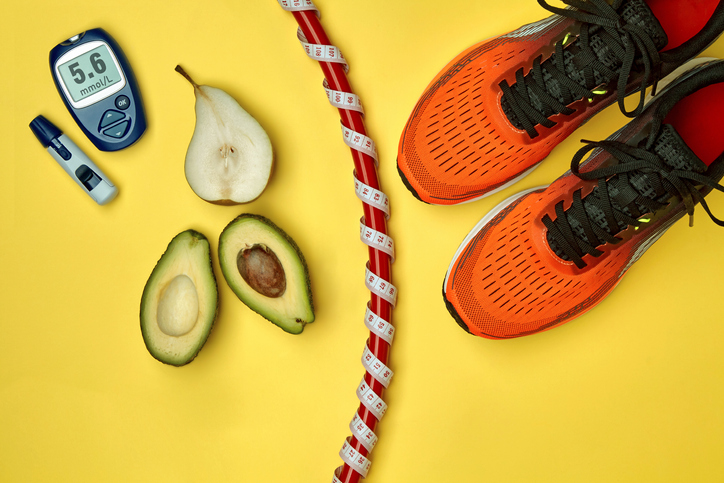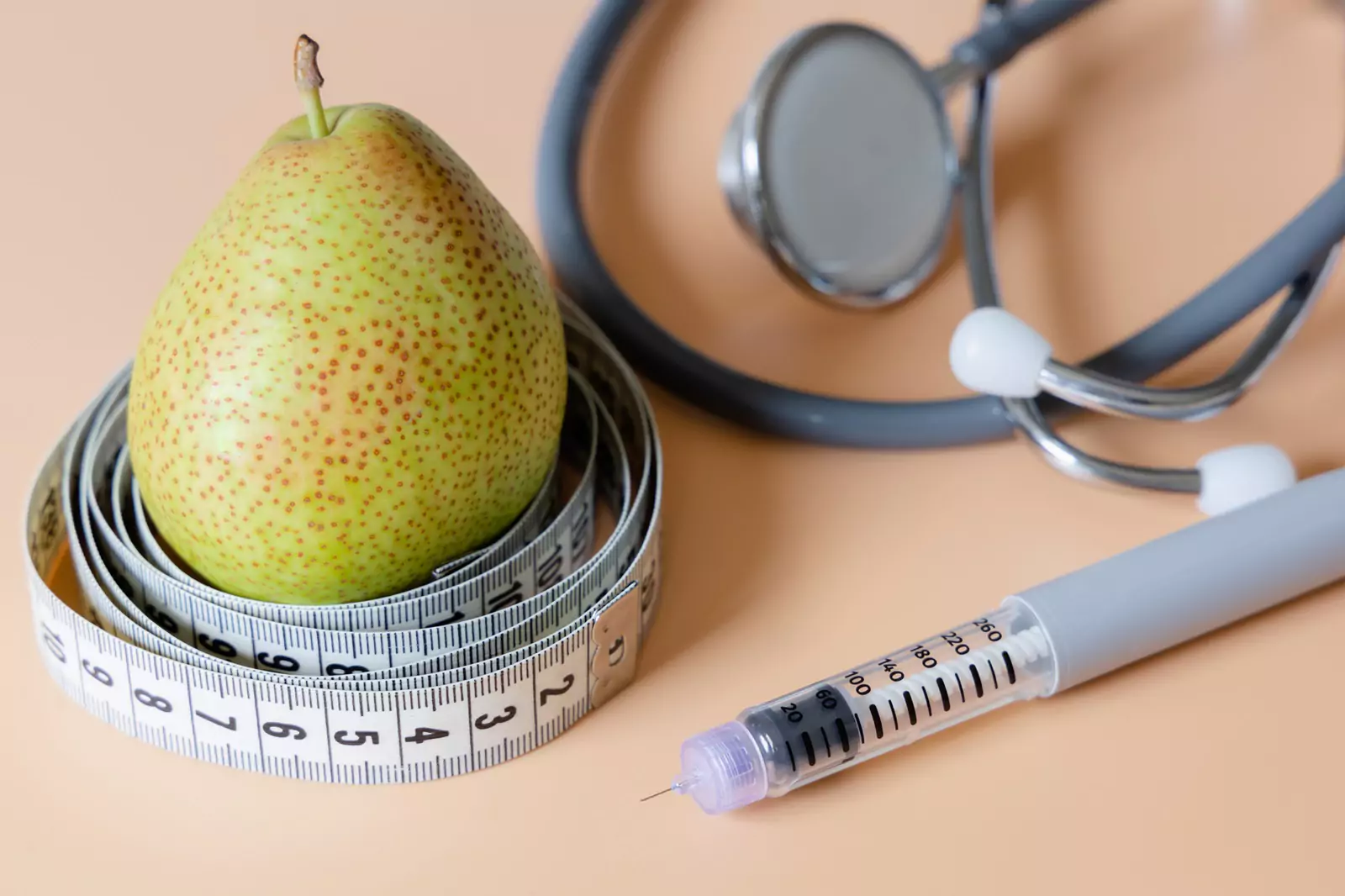
UP TO 40% OFF SITEWIDE






What I Would Eat If I Was Diabetic – Doctor Explains


Table of Contents
- The Great Carbohydrate Conundrum
- Understanding the Role of Carbohydrates
- Carbs and Breakfast: A Delicate Balance
- Personifying Palates for Personalization
- SugarMD Advance Glucose Support
- The Cereal Connoisseur
- The Bagel Devotee
- Lunch Time: A Dance Between Convenience and Health
- The Evening Feast: Keeping Blood Sugar Levels in Check
- Conclusion
- About The Author
Embarking on a journey to manage diabetes often hinges on one central aspect: food choices. It's like walking a tightrope, balancing between sugar spikes and nutritious needs. But, what if I told you it doesn't have to be that way? Here's a peek into what my own diabetic-friendly diet would look like.
The Great Carbohydrate Conundrum
When it comes to managing diabetes, one topic inevitably pops up, garnering attention and stirring up debates: carbohydrates. This crucial component of our daily diet becomes a significant focal point, especially for those striving to regulate their blood sugar levels.
Some advocates argue for a drastic cut, even an absolute elimination of carbohydrates, from a diabetic-friendly diet. However, saying a reluctant goodbye to your cherished bagel may not be as straightforward or satisfying as it sounds. Hence, as we venture into the labyrinth of dietary decisions, the key lies not in sacrifice, but in making choices that are sustainable and fulfilling.
Understanding the Role of Carbohydrates
Carbohydrates, often viewed as the villain in a diabetic diet, actually play an essential role in our body's daily functions. They are the body's main source of energy, and they also impact our mood and brain function. But not all carbs are created equal.
Complex carbohydrates like whole grains, legumes, and vegetables provide a slower release of energy and contribute to the feeling of satiety, while simple carbohydrates found in sugary drinks, pastries, and white bread can cause a rapid rise in blood glucose levels.
Therefore, the goal isn't to eradicate carbs completely, but rather to choose the right type and quantity that will maintain a steady blood sugar level. The trick is to combine these carbs with other macronutrients like protein and healthy fats to balance out the overall effect on blood sugar levels.
Carbs and Breakfast: A Delicate Balance
Navigating the world of breakfast foods, we encounter another paradox. We've often heard that breakfast is the most important meal of the day, and yet for diabetics, the choices become less clear. While some experts advocate for skipping breakfast, others highlight the potential benefits of a well-balanced morning meal in maintaining steady blood sugar levels throughout the day. The crux of the matter lies in the composition of the meal.
Pairing high fat and protein-rich foods with carefully chosen carbohydrates may result in a breakfast that aids blood sugar control. It's not about eliminating carbs entirely from the breakfast table but rather ensuring they are present in moderation and accompanied by other beneficial nutrients. For instance, steel-cut oats, a source of complex carbs, when paired with nuts and seeds, sources of protein and healthy fats, result in a well-rounded breakfast.
Personifying Palates for Personalization
Our breakfast choices can be as diverse as our personalities. Hence, let's delve into some delightful morning meals that would cater to different taste buds. A common debate arises around the importance of breakfast for diabetics. However, combining high fat and protein-rich meals in the morning may help regulate blood sugar. If you're interested in intermittent fasting, skipping dinner could lead to notable results.
SugarMD Advance Glucose Support
Maintaining healthy blood sugar levels can be a challenge. From carby meals to snacks and even with all the effort, it’s still not enough. That’s where SugarMD Advanced Glucose Support comes in.
Our blend of traditional Ayurvedic herbs helps regulate blood sugar levels, curbs cravings, supports weight loss, boosts metabolism and energy. Endorsed by endocrinologists, this unique formula of pure, potent herbs promotes overall blood sugar health. Ideal for both pre-diabetics and Type 2 diabetics.
The Cereal Connoisseur
To all the cereal aficionados out there, consider transitioning to steel-cut oatmeal. Pair it with cream, walnuts, and almonds, turning the oatmeal from the main course to a base. This simple swap lowers your carbohydrate intake while boosting the fat content. And voila, a delightful breakfast that doesn't spike your blood sugar levels!
The Bagel Devotee
Bagel enthusiasts might be fearing the worst now, but worry not! Swap your regular bagel with either full-fat cottage cheese on toast, tortillas with avocado, or pita with Greek yogurt. These alternatives not only reduce your calorie intake but also provide a balanced nutritional profile.
Lunch Time: A Dance Between Convenience and Health
Lunchtime often becomes a race against time. However, I suggest embracing planning and preparation. Opt for a nutrient-rich salad or soup. If sandwiches call your name, try turkey avocado or a similar protein and fat-rich sandwich. Remember, the principle remains the same: adding healthy fats to your meals.
The Evening Feast: Keeping Blood Sugar Levels in Check
Should your blood sugar read 200 at dinnertime, fret not! Let's delve into some diabetic-friendly dinner ideas that promise a feast without the guilt.
- Grilled Delight Salad: A salad topped with grilled chicken or salmon is an excellent dinner option, packed with essential vitamins and minerals. However, skip the croutons to avoid extra carbohydrates.
- Fajita Fiesta: Veggie, chicken, or steak fajitas served in a lettuce wrap or with quinoa offer a filling meal that won't spike your blood sugar levels.
- Buddha Bowl Banquet: These bowls allow creativity while controlling blood sugar. Start with a base like quinoa or greens, and top it off with exciting ingredients and a low carb dressing.
- Burrito Bowl Bash: An excellent choice for those who love Mexican cuisine. Grill some chicken or beef, add your favorite toppings, and limit the rice for a delicious, diabetes-friendly meal.
- Salmon Supper: Baked salmon, packed with Omega-3 fatty acids, coupled with steamed vegetables, makes a delectable dinner.
Conclusion
Navigating the diabetic diet maze need not feel like a daunting task. It's possible to savor every bite without feeling deprived or restricted, and hopefully, this guide sets you off on the right track. Remember, the key lies in making informed choices that balance enjoyment with health, making your diabetic journey a delightful one.
About The Author
Meet Dr. Ahmet Ergin a highly skilled and dedicated endocrinologist with a passion for diabetes care. Dr. Ergin earned his medical degree with honors from Marmara University in Istanbul. He completed internal medicine residency and endocrinology fellowship at Cleveland Clinic.
Dr. Ergin is board-certified in Internal Medicine, Endocrinology, Diabetes, and Metabolism due to his vast medical expertise. He's a certified diabetes educator, author of "The Ultimate Diabetes Book," and founder of "the SugarMD YouTube channel."
Dr. Ergin offers exceptional diabetes care to his patients in Port Saint Lucie, FL, helping them manage effectively. Disclaimer: These statements have not been evaluated by the Food and Drug Administration. Information on this website isn’t intended to treat, cure or prevent any disease. Discuss with your doctor and do not self-treat.
Written By Dr. Ahmet Ergin
466 total articles
Meet Dr. Ahmet Ergin, a highly skilled and dedicated endocrinologist with a passion for diabetes care. Dr. Ergin earned his medical degree with honors from Marmara University in Istanbul. He completed internal medicine residency and endocrinology fellowship at Cleveland Clinic. Dr. Ergin is board-certified in Internal Medicine, Endocrinology, Diabetes, and Metabolism due to his vast medical expertise. He's a certified diabetes educator, author of “The Ultimate Diabetes Book,” and founder of “the SugarMD YouTube channel.” Dr. Ergin offers exceptional diabetes care to his patients in Port Saint Lucie, FL, helping them manage effectively. For a closer look into his insights and experiences, connect with Dr. Ahmet Ergin on LinkedIn, Instagram, and YouTube.”
Disclaimer: These statements have not been evaluated by the Food and Drug Administration. Information on this website isn't intended to treat, cure or prevent any disease. Discuss with your doctor and do not self-treat.
Products















